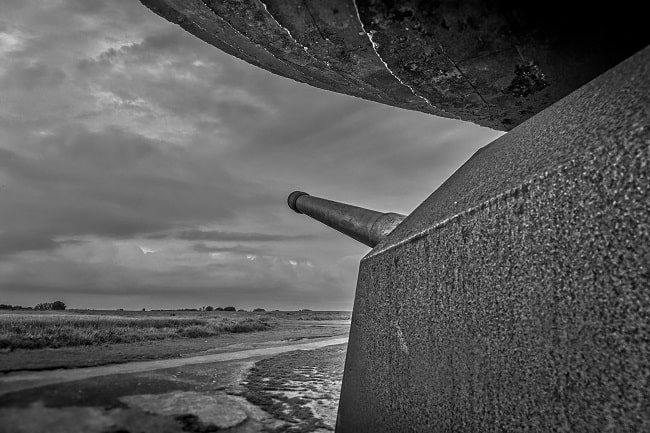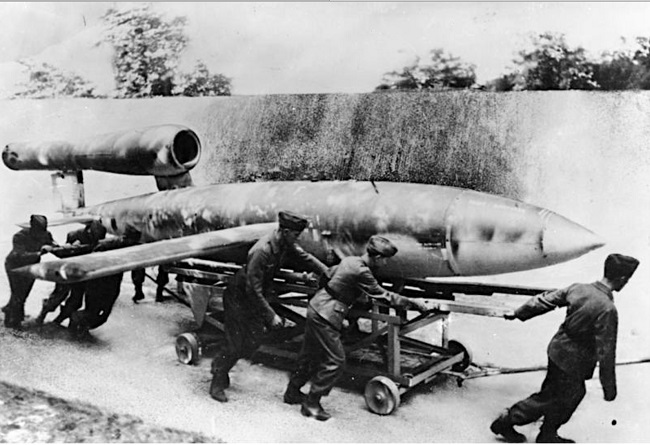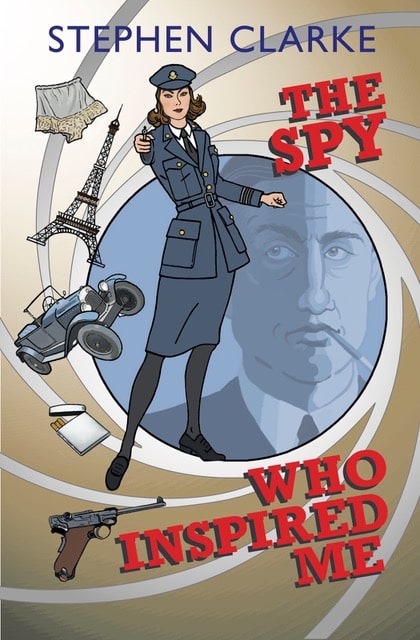Book Review: The Spy Who Inspired Me by Stephen Clarke
- SUBSCRIBE
- ALREADY SUBSCRIBED?
BECOME A BONJOUR PARIS MEMBER
Gain full access to our collection of over 5,000 articles and bring the City of Light into your life. Just 60 USD per year.
Find out why you should become a member here.
Sign in
Fill in your credentials below.
Are you ready for a good binge read? That’s exactly what will happen with Stephen Clarke’s new espionage thriller The Spy Who Inspired Me. Once you dive in, you’re swept into the volatile current. You can’t stop until the grand finale and you know all the secrets — or, at least, until you accept the fact that you will never know everything. After all, it’s a spy novel.
Settling in with a good book — or succumbing to Netflix and Hulu addiction — have earned meaningful roles in our new normal of confinement and curfew.
It’s a welcome diversion to be transported to April 1944 and a World War II adventure that’s part history, part wry British humor, and part revenge tribute to Ian Fleming and the political incorrectness of the early James Bond novels.

Netflix on tv. © Mollie Sivaram, Unsplash
This is no ordinary spy story. And it’s certainly not about Ian Fleming. The main character is Ian Lemming (an impenetrable alias). “There is no ‘F’ in Lemming,” Clarke (and his lawyers) insist.
Lemming is a British Intelligence Officer who spends most of his time at a desk and appreciates the finer things in life — a sensual understanding of wine, the advantages of private clubs and attentive service, the lure of elegant cars, the undeniable nourishment of cigarettes from a silver cigarette case (both Lemming and Fleming were heavy smokers), and an appreciation of beautiful women, especially when they succumb to his intelligent banter and charm, as, he believes, they always do.
The young and beautiful mission-oriented spy who baffles, challenges, and ultimately inspires Lemming is Margaux Lynd (not to be confused with the original Bond girl in Casino Royale named Vesper Lynd). She is someone that men look at with “a mixture of lust and respect.”

James bond illustration. © Shutterstock
Since Fleming’s novels often portrayed women as untrustworthy and the ultimate betrayers, Clarke seeks his revenge by making his heroine the star (a heartfelt ode to the power of women). Margaux shows her prowess and fearless dedication throughout the mission.
She gave his hand a quick squeeze, and they exchanged an encouraging smile. He liked to think that it was because she was nervous, and not because she thought he was.”
An unexpected twist early in the novel adds plot tension, character evolution, and inherent comedy. Lemming is part of an undercover team headed for France, but his job is only to brief the team on the submarine while traveling from England to Normandy. And, although, he is infatuated with the courageous woman spy he has just met (and coincidentally dined with and kissed the night before the first briefing meeting), he expects to return to his London desk and his champagne dinners after the mission team lands in Normandy.
Lemming was the odd man out. The lucky one who was running the smallest risk. He was like a mountain guide pointing up to a precipitous unclimbed peak that everyone except him was going to scale.
The Germans have another plan. They attack the submarine as it nears the Normandy coast. Margaux and Ian find their way safely to shore. They now must travel together, as Margaux continues the secret mission.
Ian has not seen this kind of action in his military life. He is about to get a crash course in spycraft (including undercover identities, cryptic hidden messages, and cyanide pills), the moral complexities of the occupation, and the ravages of war.
In her position, she was literally risking her life every time she trusted anyone. And if he had to be honest, his being here was doubling the risk of her capture.
He had never knowingly been anyone’s luggage in his life. Perhaps he should leave and accept his inevitable fate.
As they make their way across northern France and ultimately to Paris, Lemming slowly realizes that Margaux is exceptional at her work. He still has his own character frailties, but he has the good sense to learn from this woman. His admiration and fear of her grow into respect and awe. He admits that she is the most courageous woman he has ever known.

Danger lurked everywhere in WW II Normandy. © Pixabay
An Author for all Genres
In this new novel, Clarke deftly interweaves all the genres that have made him a sought-after author. He blends the comedic savvy of the Merde series with careful research and love of history (reminiscent of One Thousand Years of Annoying the French and The French Revolution and What Went Wrong).
His prose is precise and fast moving, but his multi-sensory descriptions allow us pause to soak in the atmosphere of every scene.
It [the submarine] was multi-layered and the diametric opposite of a good wine: first to hit your palate was the sickly scent of diesel. Then came the heady aroma of unwashed bodies. Finally there were subtle notes of stagnant water, in which someone had long ago dumped a cargo of cabbages. All this with an ambient metallic aftertaste, like something Lemming had once experienced after food poisoning.
We can smell the pig sty that becomes a hiding place. We wait breathlessly with them in the dark as they listen for the safety of silence.

Lemming goes into hiding one night with a new friend. © Pixabay
We can feel the wet and cold of their clothes and shoes as they slosh through rainy fields. We can hear the grinding of overhead planes and doodlebugs, a constant reminder that war is all around. And we can taste the bowl of broth that serves as sustenance on a journey that offers little in the way of food and drink.

Doodlebugs show up throughout the novel. What were they? V-1 Flying Bombs used by the Germans in WW II. Creative Commons via Wikimedia
Clarke’s cinematic style gives us a realistic look at how people lived during this time of war and what occupied France looked like. We can see the Nazi flags flying, the barren open markets, and the downcast eyes of the French citizens who must live with German soldiers occupying their villages and towns. We glimpse occupied Paris, with Nazis seizing the best hotels and collaborators enjoying café and theater life.

The Bristol Hotel is the setting of the novel’s turning point. It was one of the only grand hotels that was not seized by the Nazis. The management also secretly housed a Jewish architect throughout the occupation. © Meredith Mullins
Besides a fast-moving plot and brilliant descriptions, there are many things to like about this novel. We gain a better understanding of the moral complications of living in occupied France — the fear of trusting the wrong person and the reward of finding the best of humanity in the those who support the resistance.
We receive subtle French language lessons, as all the French dialogue is immediately and seamlessly translated for us, like learning from subtitles in a film (oui, even the curse words).
And we learn some of the tricks of the spy trade, including the fact that a woman agent must be sure that even her underwear matches her undercover identity. The women spies of World War II had a particularly dangerous job. One hint that they were not who they were pretending to be and they were dead.
Timing is Everything
Clarke published The Spy Who Inspired Me himself (as he did with his first book, which launched his career). He wanted complete freedom with his humor and “impenetrable aliases.”

Author Stephen Clarke © Marie Liss
The novel was timed for release with the new James Bond film. The film has been delayed, but the book is here for you now (with a personal challenge from Clarke “to see how many of the cheeky Bond references you can spot”).
There are no flashy Hollywood car chases and you’ll hear no dramatic music (except in your imagination), but you will be rewarded with a well-told story of war, espionage, and partnership . . . with the right amount of humor thrown in to keep your curfewed spirits up.
You’re really the worst kind of fool, she told him. But this time she said it the way a man likes to hear a woman say it.
You can purchase Stephen Clarke’s The Spy Who Inspired Me at local Paris English-language bookstores (signed copies are available at The Abbey Bookshop), at Reelbooks in Fontainebleau, and on Amazon. Signed copies are also available from [email protected].
More in book, crime, Novel, review, Suspense





